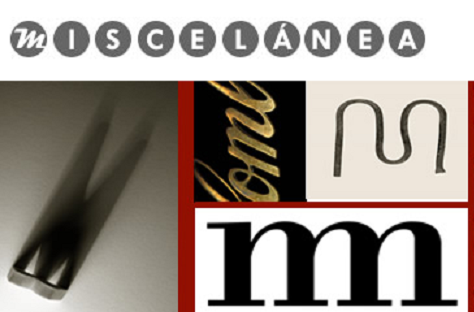Politeness Phenomena in British English and Uruguayan Spanish: The Case of Requests
DOI:
https://doi.org/10.26754/ojs_misc/mj.199711291Resumen
Este trabajo presenta un análisis de los patrones de realización de peticiones en inglés británico y español uruguayo, estableciendo las similitudes y diferencias entre la conceptualización de la cortesía por parte de los hablantes nativos de ambas lenguas. Los resultados obtenidos, basados en el análisis de un test de finalización del discurso administrado a 30 hablantes nativos de inglés británico y 30 hablantes nativos de español uruguayo, muestran que la principal diferencia entre las peticiones británicas y uruguayas es una cuestión de orientación. Los británicos parecen inclinarse más hacia la cortesía «negativa», concediendo así más importancia a aspectos negativos de la «cara» como la no~imposición y el distanciamiento. Por otro lado, los uruguayos parecen inclinarse más hacia la cortesía «positiva», concediendo así más importancia a los aspectos positivos de la «cara», como la aprobación y la implicación.
Descargas
Citas
BEHARES, L. E. 1981. 'Estudio sociodialectológico de las formas verbales de segunda persona en el español de Montevideo." In Estudios sobre el españoi del Uruguay, Ed. A. Elizaincín.
---. 1981. Montevideo: Dirección General de Extensión Universitaria, División Publicaciones y Ediciones.
BLUM-KULKA, S. 1987. "Indirectness and Politeness in Requests: Same or Different?' Journal of Pragmatics 11.2: 131-146.
BLUM-KULKA, S., J. HOUSE AND G. KASPER. 1989. Cross-Cultural Pragmatics: Requests and Apologies. Norwood (NJ: Ablex.
BROWN, P., and S. LEVINSON, 1987. Politeness: Some Universals In Language Use. Cambridge: Cambridge UP.
FRASER, B. and W. NOLEN. 1981. 'The Association of Deference with Linguistic Form." International Journal of the Sociology of Language 27: 93-109.
GOFFMAN, E, 1967. Interaction Ritual: Essays on Face to Face Behavior. Garden City (NY): Doubleday.
GU, Y. 1990. "Politeness Phenomena in Modern Chinese." Journal of Pragmatics 14: 237-257.
GUDYKUNST, W., and S. TING-ToOMEY. 1988. Culture and Interpersonal Communication. Newbury Park: Sage.
HALL, E. 1976. Beyond Culture. New York: Doubleday.
HICKEY, L. 1991. "Comparatively Polite People in Spain and Britain." Association for Contemporary Iberian Studies 4.2: 2-7.
HICKEY, L. and I. VAzQUEz ORTA. 1996. 'Politeness as Deference: A Pragmatic View." Pragmalingüística 2: 267-286.
LAKOFF, R. 1973. "The Logic of Politeness: Or Minding your P's and Q's." Papers from the Ninth Regional Meeting of the Chicago Linguistic Society. Chicago: Chicago UP.
LAVANDERA, B. 1987. "The Social Pragmatics of Politeness Forms." In Sociolinguistics: An International Handbook of the Science of Language and Society, Vol i. Ed. U. Ammon and N. Dittmar. Berlin: Mouton de Gruyter.
LBECH, G. 1983. Principles of Pragmatics, London: Longman.
LYONS, J. 1968. Introduction to Theoretical Linguistics. Cambridge: Cambridge UP.
MÁRQUEZ REITER, R. 1995. "Politeness Phenonema: The case of Requests in British English and Uruguayan Spanish." Unpublished MA dissertation. Twickenham: St Mary's University College, University of Surrey.
MATSUMOTO, Y. 1989. "Politeness and Conversational Universals: Observations from Japanese." Multilingua 8: 207-221.
PEDRETTI DE BOLON, A. 1983. El idioma de los uruguayos. Unidad y diversidad. Montevideo: Ediciones de la Banda Oriental (Temas del Sigio XX).
SIFIANOU, M. 1992, Politeness Phenomena in England and Greece: A Cross-cultural Perspective. Oxford: Clarendon Press.
VÁZQUEZ ORTA, I. 1995. A Contrastive Study if Politeness Phenomena in England and Spain. Duisburg: LAUD.
Descargas
Publicado
Cómo citar
Número
Sección
Licencia

Esta obra está bajo una licencia internacional Creative Commons Atribución-NoComercial 4.0.


